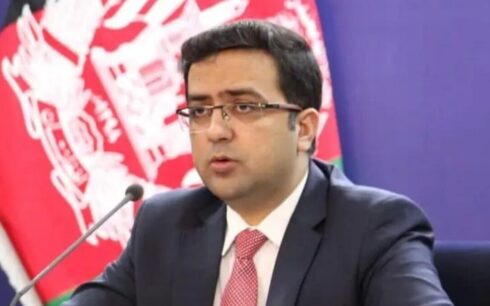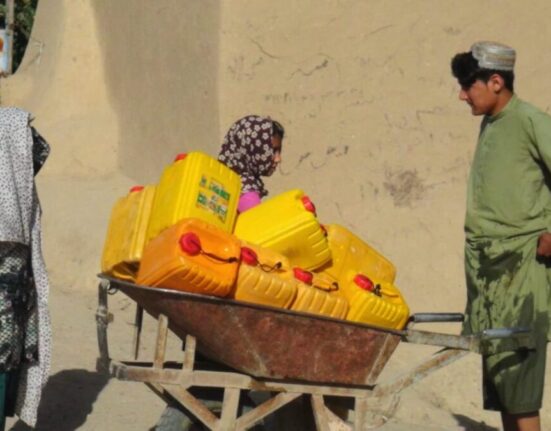KABUL — Throughout 2024, Afghanistan remained gripped by a severe humanitarian crisis, with millions struggling to access healthcare, food, and clean water amid ongoing economic hardship, decades of conflict, and natural disasters, the International Committee of the Red Cross (ICRC) said in a report.
The agency said that it responded to the situation with expanded aid operations, working alongside the Afghan Red Crescent Society (ARCS) to provide medical care, financial assistance, and critical infrastructure support.
The report, released on Monday, February 10, highlights the organization’s 2024 operations and outlines the scale of the crisis and the humanitarian interventions undertaken to ease suffering across the country.
The report shows that nearly one million Afghans—65 percent of whom were women and children—received primary healthcare at 47 ICRC-supported ARCS clinics. More than 312,000 doses of vaccines were administered, and 8,788 malnourished children benefited from nutrition programs.
It also says that as conflict-related injuries and disabilities remained widespread, seven ICRC-supported physical rehabilitation centers treated 215,274 patients. The centers manufactured 34,036 prosthetic and orthopedic devices and conducted 325,313 physiotherapy sessions to aid mobility.
Facing growing poverty, 44,992 people in Balkh, Badakhshan, Baghlan, Faryab, and Nangarhar received cash aid to meet basic needs, the report says.
It added that additionally, 50,584 farmers received grants to buy seeds, fertilizers, and tools to sustain agricultural production.
The report says that nearly 1.12 million people in Kabul, Herat, Faizabad, Kandahar, Maimana, Khost, Kunduz, and Shindand saw improved access to clean drinking water, while 460,000 people across six provinces benefited from enhanced electricity supply.
The ICRC said it helped resolve 191 cases of missing persons, reuniting families or confirming their loved ones’ whereabouts. More than 155 Red Cross messages and six oral messages were exchanged between detainees and their families. The organization also visited places of detention, advocating for humane treatment and ensuring detainees’ rights were upheld.
As Afghanistan remained one of the most heavily contaminated countries in the world in terms of landmines and unexploded ordnance, the ICRC said it worked with the Afghan Red Crescent Society to educate communities on mine risks, helping to prevent injuries and deaths.
The ICRC’s 2024 efforts reflect the immense scale of humanitarian needs in Afghanistan, as millions continued to struggle with economic collapse, environmental disasters, and ongoing security concerns. As 2025 begins, the situation remains critical, and humanitarian organizations warn that sustained aid will be essential in preventing further deterioration.





